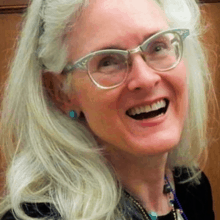Last fall’s New York Times piece about teachers holding second jobs sparked a widespread conversation on social media among teachers of all levels. Especially when the state of North Carolina thinks that teaching is just contact hours in a classroom, and teachers know that every hour in the classroom has several hours of preparation behind it and every written assignment has scores of hours of feedback and evaluation after it, teaching is already its own second job. The idea of adding on another one is mind-blowing, but as the Times illustrated, it is a reality for many teachers.
For adjunct instructors at community colleges (and four-year institutions as well), needing secondary employment is a defining feature of our jobs — a very painful truth, since the defining feature of our jobs ought to be planning and carrying out excellent courses for our students. By definition, adjuncts are part-time employees, limited to no more than four courses per semester, and often getting less. That means a paycheck might cover rent, or a car, or insurance, but not more than one of those things, and that’s only eight months of the year. An outside source of income is necessary — hence the “defining feature” situation. How exactly an instructor is supposed to have a second job is quite a question, though.
As a professional person envisioning a career path, many community college adjunct instructors want a job that advances their career and helps get them to a point of full-time employment. Such a job, though, would require that the employee be able to commit to something regular, perhaps working from 1:00 to 5:00 five days a week. What adjunct instructor could do that? We may be working a part-time schedule, but the 20 hours plus a week we have open are seldom such that we could meet a normal part-time office schedule, and even if that were the case one semester, four months later our availability would be completely different.
This means that while the world of community college and four-year college administrators can tell themselves they are hiring professionals who have plenty of time to work a second job, college scheduling makes it all but impossible for that second job to be professional. Adjuncting leaves time to wait tables and work weekend retail jobs, not to work in nonprofit programming or educational management, for instance, and improve a résumé.
It’s easy for adjuncts to see this situation as their own personal problem (or even failure) that is up to them to solve, but this is a systemic problem. Like many employers, such as Target, colleges have learned to shift all the risk onto their employees. These types of retail employees have to commit to being available at all times, but are given their work schedules only two weeks in advance. The schedules are never the same, and the shifts can be cancelled at any time. The employer has a workforce sitting by the phone that they can call on whenever they like, but that they don’t have to pay unless they are actually working.
Likewise, colleges and universities have learned to outsource much of their teaching and their risk to adjuncts, who do not have the same schedule from semester to semester and who have to commit to being available with no commitment of employment in return. This latter provision means, for instance, that I committed five months ago to teaching four courses this spring, but in fact have only two, and so for half of the already small paycheck, my week is completely fragmented.
I am actually very happy with my job — teaching world religions and ethics to this particular student population is exactly the kind of critical teaching I trained to do at UNC-Greensboro’s Cultural Foundations in Education program. I am crazy about my students and am energized by every classroom session. My department head and my dean are wonderful people who are tremendously supportive of me and my teaching and my students.
But the idea that I even need to write what I did above is very demoralizing — that it sounds reasonable for me to want more stability at my job so that I can get a better second job. How about the fact that teaching four courses to college students isn’t a full-time load with a decent salary? I realize that I am not expected to do the kind of research and writing the rest of the time that I would be at a large university, but I am doing what my full-time professors at Davidson College, where I went, did: doing a great job teaching at an institution whose sole purpose is to teach, not to do research.
Why, instead of taking home $600 to $1200 a month eight months out of the year, am I not paid a professional salary and treated like an integral part of this college? Why am I dreaming of an office where I can work and meet with students, while today I met with a student on a bench in a lobby after signing back in the key to the classroom, which I do every single time I teach (no matter where the desk is vis-à-vis the classroom and the parking) because I can’t even have a key? Why do I have to dread snow days and weather events?
Any school closing means that instead of just going to school and teaching the lesson I already have prepared, I will spend the entire day devising something the students can do via BlackBoard that will help them understand this lesson (although several of my students don’t have regular internet access) and that includes an accountability piece that I’ll have to grade. A snow day means six or eight hours of unpaid work (in a job in which I am paid by the hour), and then filling out and submitting an alternative instruction form detailing what I did.
School opens late for icy roads and you miss a half hour of an 80-minute class? AI form. Class cancelled so the instructor can go to a professional conference? AI form. In a K-12 environment and at a four-year college, the teacher has the discretion to make up a missed class throughout the coming few class meetings — but for community college instructors, constant micromanagement, the constant message that we have no authority over our courses, and the constant communication of distrust of us is a corrosive bath of disrespect. No matter how much exceptional teaching we provide, the state of North Carolina continually tells us that they don’t trust us and that we must be heavily monitored.
Tremendous underemployment, constant uncertainty, disrespect, no insurance, benefits, retirement, or even mileage reimbursement — at the highest levels of governance of community and four-year colleges and universities, all these things make sense because they tell themselves that adjuncts are temporary and part-time employees, like teenagers flipping hamburgers for a summer. However, over half of all college and university courses nationwide are taught by adjunct instructors and other contingent employees. These employees are not the exception and they are not outside of the system — they are the system.
Colleges have institutionalized the use of adjunct instructors and need to acknowledge that, bring them into the system, and offer a professional career path, financial justice, and respect. Doing this is going to require unified pressure from part-time and full-time instructors (whose own exploitation is another topic) in all types of higher education settings as community colleges and four-year institutions are profiting mightily from our inaction.
We are providing them with an extremely high-quality product that they are selling, and in return we are deferring car maintenance, trying not to get sick, and competing with our own students to wait tables.





